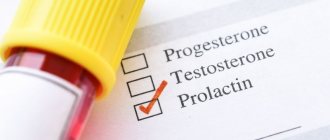The result of the IVF program is assessed based on a blood test for hCG levels and an ultrasound of the pelvic organs, during which the fertilized egg is visualized in the uterine cavity.
Human chorionic gonadotropin is a hormone that is produced by the outer membrane of the embryo and is detected in the blood and urine of the expectant mother, as well as in the amniotic fluid.
Using an online calculator, you can independently assess how your pregnancy is developing. To get the result, enter the data of the hCG tests, and also indicate on what day after the embryo transfer the first test was carried out and how many hours passed between the two tests.
The first hCG indicator
Day after embryo transfer to the date of the first hCG
Second hCG indicator
Number of hours between tests
| Difference in hCG levels: | 2 mIU/ml |
| HCG doubles every: | 72 hours |
| Two-day hCG rise: | 72 hours |
HCG during pregnancy
Human chorionic gonadotropin (hCG) is a hormone that is synthesized by the placenta of the fetus during a woman’s pregnancy. The synthesis of hCG begins immediately a few hours after conception occurs. Then, until weeks 7-11, there is a constant increase in hCG, after which its level decreases.
This hormone, which is called the main hormone of pregnancy, belongs to the group of gonadotropins. Its structure is similar to that of luteinizing hormone (LH) and follicle-stimulating hormone (FSH). The hCG glycoprotein consists of two subunits: alpha (α) and beta (b). The α-subunit is identical to the subunits of pituitary hormones (LH, FSH and TSH), the b-subunit is unique.
To accurately determine reliable indicators, it is necessary to conduct tests for the b-subunit of the hormone (beta-hCG).
Assessing the level of b-hCG in the blood allows you to determine the onset of pregnancy within 14 days after conception.
Free hCG (beta-hCG): normal values
The level of free hCG b-subunit in venous blood in non-pregnant women is no more than 0.013 mIU/ml.
Normal indicators by week for pregnant women:
- Week 11 – 49.9 mIU/ml;
- Week 12 – 40.6 mIU/ml;
- Week 13 – 33.6 mIU/ml;
- Week 14 – 28.8 mIU/ml.
Why is hCG decoding important?
The appearance and increase of human chorionic gonadotropin in the urine indicates the onset of pregnancy. Determining the level of this hormone is also important for monitoring the ongoing pregnancy.
Reduced hCG levels in a pregnant woman can also signal that the pregnancy is not developing or that there is a possible threat of spontaneous abortion. HCG during an ectopic pregnancy is also lower than normal.
If the hormone level is less than 5 IU (hCG - 0, hCG - 1, hCG - 2, hCG -3, hCG - 4, hCG - 5), it can be assumed that conception has not occurred. An indicator of less than 25 IU does not refute or confirm pregnancy, which requires a repeat test after 2-3 days, since hCG can be negative if the test was performed too early or the resulting pregnancy is ectopic. In order to increase the reliability of the result, it is recommended to carry out the hCG test no earlier than two weeks after the expected fertilization.
Triple screening: free estradiol, AFP and hCG
Conducting a triple test, otherwise called a “prenatal risk assessment,” is recommended in order to determine the likelihood of pathologies in the unborn child. To conduct this study, a pregnant woman must donate blood, which is tested for hormone levels: free estradiol, hCG and AFP. Using a special program, the probability of having a child with Down syndrome, the risk of fetal development delay and the risk of NTDs (certain groups of congenital developmental anomalies) are calculated.
The level of serum markers is expressed in relative units - “multiples of median” (MoM). The normal level of hCG (MoM) is a hormone level ranging from 0.45 to 2.5.
HCG results by days after embryo transfer during IVF
During in vitro fertilization (in vitro fertilization), hCG level depends on the “age” of the embryo (three days or five days) and the day after embryo transfer (ET):
| HCG/DPP | HCG level (normal) after transfer of a three-day embryo | HCG level (normal) after transfer of a five-day embryo |
| hCG/4 | 4 | 11 |
| hCG / 5 | 7 | 18 |
| hCG / 6 | 11 | 28 |
| hCG / 7 | 18 | 45 |
| hCG / 8 | 28 | 73 |
| hCG / 9 | 45 | 105 |
| hCG / 10 | 73 | 160 |
| hCG/11 | 105 | 260 |
| hCG / 12 | 160 | 410 |
| hCG / 13 | 260 | 650 |
| hCG / 14 | 410 | 980 |
| hCG / 15 | 650 | 1380 |
| hCG / 16 | 980 | 1960 |
| hCG / 17 | 1380 | 2680 |
There is also a weekly hCG calculator that allows you to monitor the normal course of pregnancy:
• 1-2 weeks – 300IU; • 3 week – 5000IU; • 4 week – 30000IU; • 5 week – 100000IU; • 6 week – 150000IU; • 7-9 weeks – 200000IU; • 10 week – 150000-200000IU; • 12 week – 90000IU; • 14 week – 60000IU; • 25 week – 40000IU; • 35 week – 40,000-60,000 IU.
HCG: when to get tested
The presence or absence of pregnancy can be determined a week after the expected conception by taking a blood test for hCG levels. Based on the results of this study, it is also possible to clarify the duration of pregnancy. However, doctors recommend conducting an hCG test (even if the date of conception is known) no earlier than 20-28 days from the first day of the previous menstrual cycle.
Detection of hCG levels is a good prognostic factor, allowing one to judge the normal course of pregnancy. The essence of this method is to monitor the constant increase in the concentration of this hormone. The highest level of hCG is observed at the 10th week of pregnancy, after which its levels decrease. If the hormone level does not increase before the 10th week, or low hCG is recorded earlier than the due date, you must immediately consult a doctor in order to avoid the development of serious complications caused by pathology of fetal development or disruption of the course of pregnancy.
Preparing for hCG level analysis
It is recommended to take the hCG test in the morning, on an empty stomach. 24 hours before blood sampling, you must avoid eating fried and fatty foods and limit physical activity.
The analysis should not be carried out immediately after ultrasound, physiotherapeutic procedures and x-rays. Due to the fact that hCG is a unique hormone that has no analogues, taking hormonal drugs does not affect the test result, however, it is still recommended to inform your doctor about taking certain medications.
The timing of the hCG analysis is determined by the attending physician, who prescribes the first test, which will need to be repeated 2-3 times, which will give a dynamic picture of the growth of the hormone level. The intervals between tests should be at least three days. To obtain the most reliable results, it is recommended to donate blood at the same time and in the same laboratory.
Repeated analysis of the hCG level allows you to assess the course of pregnancy, which is especially important for patients who are at risk of miscarriage, since conducting this study at an early stage is the only safe way to determine the normal development of the unborn child.
Is it possible to do a pregnancy test after an hCG injection?
Women with recurrent miscarriage, with signs of a threat of spontaneous abortion, as well as in the process of planning pregnancy (to stimulate ovulation), may be prescribed an injection of hCG, which increases the level of this hormone in the body. To avoid false positive results, a pregnancy test should be done no earlier than 12-14 days after the hCG injection.
At the IVF Center clinic in Nalchik, specializing in the treatment of infertility and pregnancy management, all the necessary laboratory tests that a woman may need during pregnancy, including an analysis of hCG levels, are carried out.
The clinic's doctors and laboratory technicians have modern medical diagnostic equipment at their disposal, allowing them to achieve the most reliable research results.
Highly qualified doctors of the IVF Center will promptly identify possible disturbances in the course of pregnancy and take adequate measures, protecting the woman and the unborn baby from the possible development of severe complications.
You can make an appointment for a test or an appointment with a specialist by phone or on the clinic’s website by filling out the application form.
What is implantation?
One of the stages of the IVF protocol is embryo transfer. Of great importance for its successful implantation is how well the endometrium is prepared for replantation. Hormonal therapy helps maintain it in the right condition throughout the IVF protocol.
The characteristics of the endometrium change throughout the cycle. The most favorable conditions for embryo attachment occur approximately 5-7 days after ovulation; this period lasts literally 2-3 days and is called the implantation “window”. At this point, the endometrium becomes thicker and filled with new blood vessels. The outside of the embryo is covered with traphoblast. It is these cells that attach to the endometrium and gradually penetrate deeper into it. Complete implantation occurs in approximately 12 days. If the embryo is successfully attached, the endometrium will initially supply it with nutrients.
When should it be done?

After IVF, hCG is positive only on the 13th – 15th day from the moment of embryo transfer. But sometimes the hCG level increases earlier, starting from the 9th day of replantation, when the embryo is completely embedded in the uterine wall and begins its development. But such studies often lead to errors or the result is negative due to a low amount of the hormone, so it is better to wait and then know for sure the outcome of fertilization. It is possible to use pregnancy tests from an early stage, but you must remember and know that normally a woman’s body produces a small amount of hCG, so ultra-sensitive tests may show two stripes.
Reproduction specialists advise carrying out the test at home no earlier than a week from the moment of replantation. But remember that a pregnancy test does not always show a reliable result, because its sensitivity varies, so often during a developing pregnancy in the early stages, the test may be negative.
Only a doctor can judge pregnancy and its development using a pregnancy test, having examined several tests over time. A reliable analysis that confirms or excludes the development of pregnancy is an indicator of the level of hCG in the blood over time.
Possible causes of low hCG levels
A reduced level of gonadotropin will be informative only for pregnant women. When confirming pregnancy, the detection of low hCG levels raises concerns and requires immediate measures to save the fetus and/or mother. Possible reasons:
- fetal development outside the uterine cavity;
- cessation of embryo development
- threat of termination of pregnancy for various reasons (characterized by a progressive decrease in gonadotropin concentration by more than 50%);
Despite the presence of pregnancy, the test may show a negative result (false negative test) for the following reasons:
- untimely examination (test performed early);
- attachment of a fertilized egg outside the uterine cavity.
How do you know that the implantation was successful?
With late embryo implantation, the patient may experience:
- nagging pain in the lower abdomen, around the lower back;
- slight bleeding;
- dizziness, weakness, drowsiness, nausea;
- metallic taste in the mouth;
- sudden mood swings, anxiety, irritability.
If the abdominal pain does not go away, the bleeding increases, the temperature rises, you should immediately consult a doctor.
It is not worth judging the occurrence/non-occurrence of pregnancy only by the listed signs - sometimes a woman does not observe any changes in well-being at all, but implantation is successful, and vice versa. You can only say for sure whether you are pregnant or not after an hCG test.
Possible causes of increased hormone levels
Elevated gonadotropin values against the background of confirmed fetal absence may indicate the development of serious diseases. The norm in non-pregnant women and men in most cases is increased in the presence of such serious diseases as: neoplasms of various locations , and this is typical for both benign and malignant tumors, testicular seminoma, growth of chorionic carcinoma or its relapse. Also, a deviation from normal values can be caused by taking hormonal drugs , or if the study was carried out earlier than 5 days after termination of pregnancy.
HCG levels during pregnancy may be higher than normal for the following reasons:
- when more than one embryo is formed (hCG levels in twins increase in proportion to the number of fetuses);
- Exceeding the pregnancy period;
- Presence of toxicosis or diabetes mellitus in a pregnant woman;
- fetal development with abnormal abnormalities;
- pregnancy is supported by taking synthetic gestagens.
Lifestyle after a positive result

Doctors recommend in the early stages to limit physical activity, stress, sex life, regularly walk in the fresh air, eat right and ensure positive emotions and psycho-emotional balance with the obligatory implementation of all recommendations and doctor’s prescriptions.







